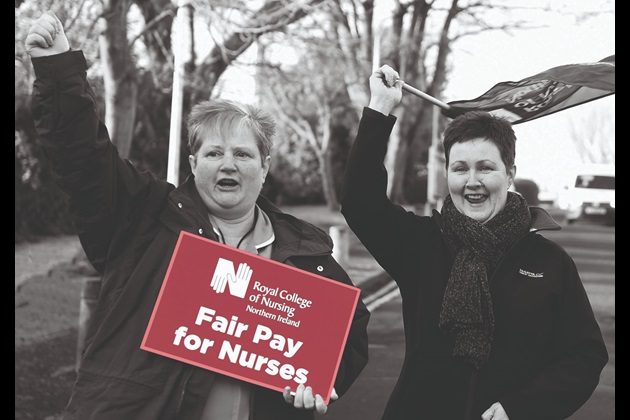We’re starting to build a new approach to engage, educate and empower members to be a force for change in their workplaces and communities
Our collective power is greater than the sum of our parts. With that power, we can influence locally and nationally to fight for what nursing and our patients need. Professional standards, pay, staffing levels, employment rights, workplace safety or any other issue we face – together, we can make real impact.
What’s happening?
We are changing the way we support members in their workplace. We are beginning to create a new organising model that is 100% unique to the character of our membership.
Organising is an approach to making positive change happen, where you identify the issues, come together and bring about solutions on your own terms. Successful organising is achieved largely by supporting you to build strong networks and invest in your leadership capability.
How can I get involved?
Sign up for expert training from a global leader in workplace organising this summer. We’re inviting members to attend a six-week programme with world-renowned trade union educators to help them develop the resources, confidence and ability to take action.
Be part of this exciting journey. Sign up to attend the first programme by 3 May and look out for more courses running later in the summer.
If you can’t sign up now, you can register for more information. Sign up now or register your interest.
A "taster" session for interested members took place on 13 April. You can watch this again by logging into the RCN website and visiting the Organising for Change webpage.
Training with world-renowned trade union educators will give you the resources, confidence and ability to take action
Is this just for existing activists?
This is for every single RCN member. When RCN members come together, we can achieve real change – in our workplace, community and society.
The principle of organising is members working together to develop mutual support and build leadership skills so they can work together across issues, workplaces, employers and in communities.
Every member has a role to play in educating their fellow nursing staff and all members take responsibility as active members.
For example, some members may want to become more active in our professional work, but don’t necessarily see themselves taking on traditional representative roles. These members could be engaged, excited and supported by an approach focused on advocacy, collective action and bringing about change for the benefit and improvement of patient care.
Is this a new idea?
Many different kinds of organisations and groups do different kinds of organising work, and for different reasons. Other health unions, professional bodies and community groups are increasingly exploring this way of working to more intensively equip their members to make change happen. But it’s the first time our elected members have formally decided to begin, design and eventually implement a unique organising model that will serve both the professional and trade union elements of our membership.
Some members are self-organised already. Some parts of the RCN, including certain regions, have been testing elements of organising over the years. Members in Northern Ireland showed incredible capacity and passion for organising through the industrial action they took in December 2019 and January 2020.
How is this different to what we’re doing now?
The RCN will continue to provide the support and services that members expect. The goal now is to give you more. More resources, more skills and more opportunities to act on what matters to you.








